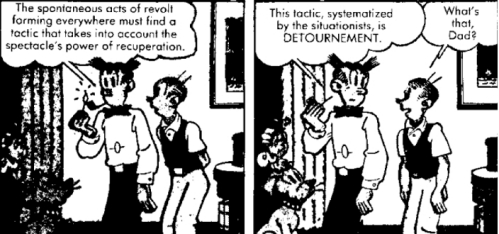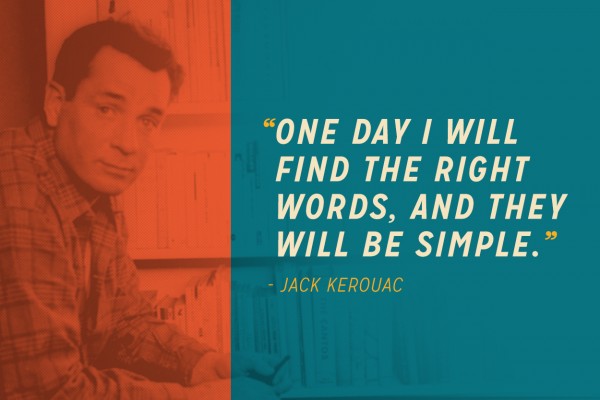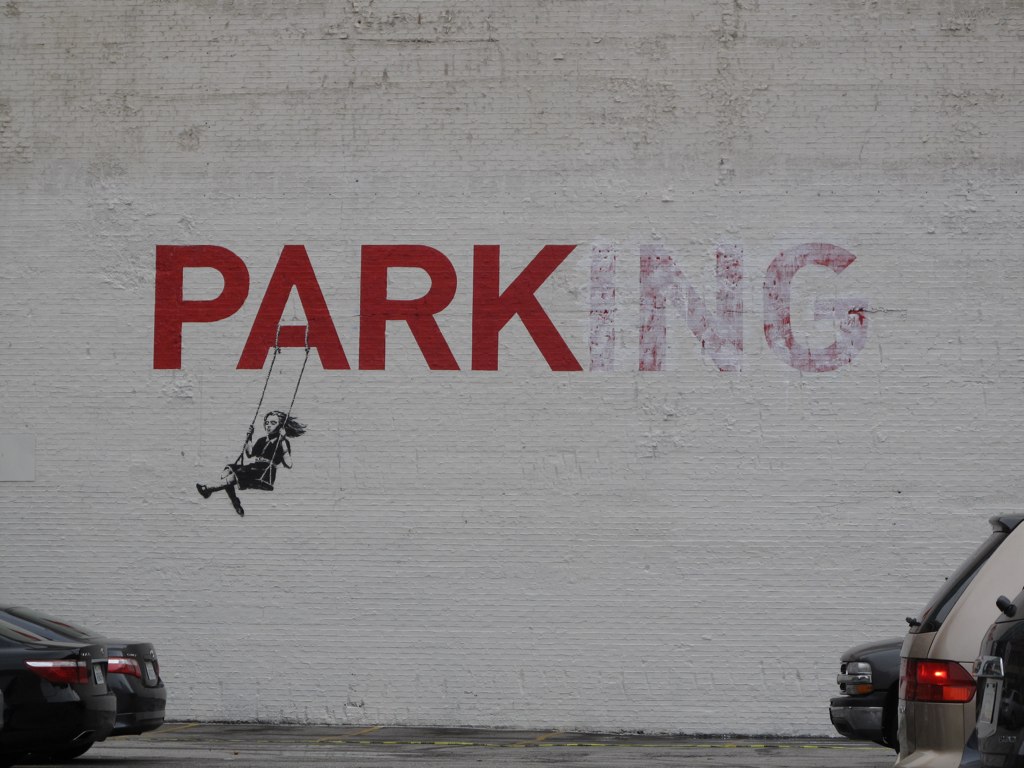The Revolution of Everyday eRepublik
 •
by
•
by Silas Soule
Live Sharp  Look Smart
Look Smart

Introduction
My aim is NOT to make the real experience of eRepublik comprehensible to players who have no real interest in reliving it. I fully expect this experience to be lost -- and rediscovered -- in the general alteration of consciousness that is part of the real meta-situation, just as I am convinced that the present conditions of the game will one day be no more than a memory.
The game must and will be remade, not reconditioned. All would-be renovators are powerless to stop this. If the mechanics experts do not understand me, so much the better; I certainly have no desire to understand them.
As for readers who like to follow my ramblings, I pray your indulgence with a humility that should not be hard to see. I hope I have not failed entirely to make my stuff accessible to minds unschooled in the jargon of ideas. Out of this confusion will one day come formulations capable of firing point-blank at worth-while targets. In the meanwhile, let sentences remembered here or there have what effect they may.

I do not claim to have anything new to say; I am not trying to launch novelties on the e-culture market. The only truly new thing here is the direction of the stream carrying commonplaces along.
Since Lautréamont, everything has already been said, yet few bother to take advantage of it. All our knowledge is banal, it can only be of value to minds that are not. The game becomes interesting through a great exorcism of obstacles, through practice. We escape the commonplace by manipulating it, controlling it, thrusting it into our dreamspace or surrendering it completely to the free play of our subjectivity.
Everything starts from subjectivity, but nothing stays there. Everything that corrupts subjectivity widens the terrain of the old e-class struggles, of which the national struggles are simply an expression.
The desire to play, to really play, is a political decision.

Who wants an e-world in which the guarantee that we shall not die of starvation or be occupied by "foreigners" entails the risk of dying of boredom. A player interested only in survival is a person ground up in the machinery of hierarchical power, caught in a net of interferences, a chaos of oppressive techniques whose ordering only awaits patient programming by programmed "experts".
A self-united player, on the other hand, is a person of absolute refusal. Not a moment of game-play passes without each one of us experiencing, on every level of e-reality, the contradiction between oppression and freedom; without being caught up and weirdly twisted by two antagonistic perspectives simultaneously: the perspective of power and the perspective of transcendence.
So don't bother reminding me I am too negative. Description of the negative underpins the positive project, and the positive project attests to negativity. I am just doing my job.

My shortcomings reflect on my readers -- as readers and even more as engaged players. If the element of boredom I experience in writing for eRepublik finds an echo in the reader, there is but one more proof, dear comrades and friends, of our failure to e-live. For the rest, no apologies; the gravity of the e-times excuses the gravity of my tone.
Levity lies either before words or beyond them. For my purposes here, irony will consist in never forgetting this.
My intention is to work for the subversive current, to make sure that the last word has not yet been heard, to contribute, against all odds, to the reconstruction of the international e-revolutionary movement. Its significance should escape no one; in any case, as time will show, no one is going to escape its implications.

Power's Perspective
Contemporary game-thought can no longer rest on its own delusions. What used to hold it up, today brings it down.
There are more truths in a day of game-play than in all the philosophies. While the 'universal player' is contaminated by a breath of perpetual anguish, the everyday e-analyst tries to escape the sclerosis of e-existence by reaching for some essentialist profundity.
The more the 'serious' e-analysts alienate themselves by expressing the dominant imagery of the times -- for example, in feudal times, they would have reflected an image of God, monarchy and the world indivisibly united; today it is a consumerist surrender (in the same sense that certain religions call for 'surrender') to corporatist republicanism, the rule of the rich, which they 'find' in the game -- the more such 'lucidity' instagrams the hidden face of e-life, which is to say the more it 'invents' everyday eRepublik while 'investing' in it.

Here's the thing. Why it feels like reality and therefore must be 'true' is that scientific objectivity and rationalism do expose mystification. And very good for that.
But what does it show us about the game? Do I, should I, would I have an inclination to choose between the doubtful pleasure of being mystified and the tedium of contemplating a 'reality' which does not concern me? Isn't this scientism just the old lie reconditioned? Isn't it, in fact, the highest stage of mystification?

The uber-analysts of the everyday game believe they have gamed the show through clever things like 'democratic dictatorship' and 'meta-Congress'. And lucidity of analysis is not their only weapon.
Their thought is no longer in danger of being imprisoned, either by the false reality of e-gods or by the false reality of e-technocracy. It turns out that there wasn't enough freedom to be found in the ruins of unitary power to prevent the ruins themselves from becoming another type of prison, another flavor of serfdom.
Behind the rent veil of superstition appeared not naked truth, but the longline fishing of modern ideologies. The prisoners of fragmentary power have no refuge from tyranny but the shadow of freedom. There is not an action or thought that is not trapped in the net of received ideas, choking the spirit and the will to e-live.
Too many corpses strew the paths of individualism and collectivism. These two apparently contrary rationalities cloak an identical gangsterism, an identical oppression of the isolated player. That is why anything I say or recommend must be tested and corrected by everyone's immediate experience. Nothing is so valuable that it need not be started afresh, nothing too rich not to need constant enrichment.

The fascination of time
Players are bewitched into believing that time slips away, and this belief is the basis of time actually slipping away. Time is the work of attrition of that adaptation to which players must resign themselves so long as they fail to change the e-world.
Age is a role. It is an acceleration of 'lived' time on the plane of appearances, an attachment to things.
The growth of e-civilization's discontents is now forcing every branch of e-therapeutics towards a new demonology. The entire apparatus for offering consolation to the e-oppressed -- low taxes, high taxes, war, peace, ideology, compensatory roles in meta-governments and meta-parliaments, movements for social change and legal reform -- they all serve the oppressor and the oppressor alone.
The order of things in eRepublik is sick: this is what our so-called leaders, the Dealer's minions, would conceal at all costs.
Most players play like sleepwalkers, torn between the gratifications of e-neurotic escapism and the traumatic prospect of a return to real life.

A player's measured age is nothing but a role. It involves a speeding up of lived time in the mode of non-life -- on the plane of appearances, and in accordance with the dictates of adaptation. To acquire power is to acquire 'age'. In earlier times only the 'elders' exercised power. Today even the young enjoy the dubious privilege of age.
In fact consumer-oligarch society, which invented the teenager as a new class of consumer, fosters premature senility: to consume is to be consumed by inauthenticity, nurturing appearance to the advantage of the spectacle and to the detriment of a really lived game life. The consumer is consumed by the things he or she becomes attached to, because these things (commodities, roles, points, scores) are dead.
Whatever you possess possesses you in return. Everything that makes you into an owner adapts you to the order of things. And makes you old. The harder you run after time, the faster time goes.
A healthy contempt for the e-future can at least ensure us a rich portion of e-life.

The Reversal of Perspective
The light of Power is on the wane. We live in a revolutionary epoch. The men of the bourgeoisie played a dirty trick on the old gods: they put them in perspective, situating them within a historical process in which they were born, matured, grew old and died.
History, especially post-Enlightenment history, has been the twilight of the gods. The explosion which demolished the cathedral of sacred values produced very slow shock waves, for even today, nearly three centuries later, great chunks of the mythic mask are still in the process of being ground to powder in the spectacle, as religion becomes little more than a brand, a political poker chip and a terrorist denomination.
The bourgeois revolution presided over one phase of the dynamiting of a God whose absolute disappearance is now in the offing. And man's domination by man will disappear along with the last shibboleth.

The function of conditioning is to assign and adjust player's positions in the hierarchical ladder. The reversal of perspective entails a kind of anti-conditioning.
Not a new form of conditioning, but a new game and its tactics; the game of subversion, or to use the popular-ish French word for it: detournement.
To reverse perspective is to stop seeing things through the eyes of the community, of ideology, of the family, or other people, to take oneself as the starting point and the center, to see the whole of Power as merely one target in a wider horizon.
Power cannot spoil my aim. On the contrary, I'm able to track its movements, gauge the current danger level and calmly observe its circus parade. My creativity, no matter how poor, is a far better guide than all the knowledge with which my head has been crammed.

All forces of cultural conditioning, specialization of every kind, and all imposed world-views -- all are irretrievably totalitarian in nature. In creativity, every player possesses the ultimate weapon. But like a talisman, this weapon has to be used wittingly.
When creativity is mobilized in the service of lies and oppression, it turns into a sick farce: the consecration of art.
We do not choose the reversal of perception out of some kind of voluntarism. It has chosen us. Caught up in the e-historical sate of nothing the next step can only be a change in everything.
Consciousness of total revolution -- or rather, of the necessity for it -- is the only way players have left of being historical, our last chance to undo e-history. The game we are about to join is the game of our creativity. Its rules are radically opposed to those which govern all of the e-societies. It is a game of loser wins: what is left unsaid is more important than what is shown on the level of appearances.
And it has to be played out to the end. Murdered truth becomes poisonous. If we do not reverse perspective, Power's perspective will succeed in turning us against ourselves once and for all.

The tyrant dominates according to his will to power. The capitalist exploits according to the laws of profit. The organizer programs and is programmed. Their appeals are, respectively, to arbitrariness, justice and rationality. Their inhumanities are: a humanity in search of itself; of bribing humanity with amenities; and of an inhumanity perfectly at peace with itself.
Capitalism instigated a need to exploit people without getting any erotic gratification from it. The perfection of the dictatorship of technologized consumerism aims at the organization of the total mastery of dead things over people. The machine itself is the last justification for the existence of bosses, the last prop of the boss's vestigial humanity.
The Psychology of Revolt
Although it is artificial, it is helpful to distinguish the three predominant passions involved in the overthrow of the reified order:
1) A passion for absolute power, for placing (game-)objects directly in the service of players, without the mediation of player-hierarchies. This is the destruction of that slavery which possesses crumbs of power. Abolishing slavery and boredom because you cannot stand the sight of it.
2) A passion for smashing constraints, for breaking chains. The priceless joy of breaking social taboos.
3) A passion for rectifying an unhappy past, for realizing disappointed hopes, of failed authority passed on from generation to generation.
The negativity of the bourgeois is undoubtedly their greatest virtue; what they lack is the possibility of transcendence.

This means the establishment of coherent groups in which individual player creativity is totally invested in collective creativity and strengthened by it; in which an unmediated played present becomes the the source of the energy potential which derived under feudalism from the past.
The bourgeois player is condemned to dream of a transformation of the e-world while confined by the laws of adaptation to it. And following the same trajectory, the dictatorship of the proletariat turns into dictatorship over the proletariat.
Victory must mean annihilation. The end of roles will mean the triumph of subjectivity. And once it has the central role, this revolutionary subjectivity wil, paradoxically, give rise to a new objectivity.

We must discover new frontiers. The problem is not how to seize power, but how to abolish Power forever. Beyond the world of hierarchy, possibilities wil surge forth unbidden.
The new proletariat carries within itself the capacity for realizing childhood and the space-time of childhood, meaning an escape from "adult time", packing a horde of events into a few days or a few hours such that time does not trickle away like an adult's.
From Power's point of view there are no lived moments, merely a sequence of interchangeable instants constituting a line of the past. A whole system of conditioning mass-markets this view of things. The present is obliterated.
Power's crowning achievement is trapping players into identification with such a past, its resort to a historical ideology which turns individual and collective will to "control" history. For Power the future is always a past reiterated.
The revolutionary project is one of self-realization and communication, a dialectic of pleasure and participation.
To do:
* Reject all leaders and all hierarchies.
* Reject self-sacrifice. It is contrary to the urge to play.
* Reject all roles.
* Strive for the freedom of self-realization.
* Engage in transparent social relationships unmediated by Power.

In its broadest sense, subversion is an all-embracing reinsertion of things into play. It is the act whereby play grasps and reunites players and play-things hitherto frozen in a hierarchy of fragments.
We have an e-world of pleasures to win, and nothing to lose but boredom.
XOXOXOXOXOXOXXOOX,
PQ


Comments
Boredom is always counter-revolutionary. Always.
good work mate
Hey aren't you and your crazy ideas blacklisted too?
Only by some blackguards fishing for Power.
lol, I don't know why the image of Blavatsky surprised me. o7
Nobody expects the Theosophical Inquisition!
I wish more people would be this engaged to media module.
My brain hurts too. Nurseee!
Mine too! The only exercise it gets around here is reading Comrade PQ....
If playing a game in the name of "fun" is labeled "subversive", then we are living in an unjust eWorld.
We always have been. Paki proved that.
Your writing continues to impact me not only here in game, but also in the real world. Thanks for generating one of the reasons I continue to play this game.
This was a dope read.
For the full version, see Raoul Vaneigem, "The Revolution of Everyday Life": http://monoskop.org/images/6/6e/Vaneigem_Raoul_The_Revolution_of_Everyday_Life.pdf
I enjoy your writings 😃 they inspire me to be a better writer.
o7
Thanks for wasting your talent on us.
I have a reason to eLive.
Baaaaaaa
o/
Just wondering, how long does it take, from idea creation to clicking the button to publish, does it take to write your average article?
About 3 hours, but that is mostly looking for pictures and editing typos.
WOW...
PQ is the writer we need, but not the one we deserve
"The game becomes interesting through a great exorcism of obstacles, through practice. We escape the commonplace by manipulating it, controlling it, thrusting it into our dreamspace or surrendering it completely to the free play of our subjectivity."
This is the process I use to work toward achieving the perfect wet dream. PQ has obviously been using his creibrial scanning ray again. Shame on you Phoenix, plagiarizing my naughty nocturnal thought processes. Tisk, tisk.
P.S. Found this if anyone is interested in learning about human nature. Kind of long and I've heard the chicken story told better but the writer makes some good observation at the conclusion. Enjoy!
http://occoffeestop.com/Stalin_and_the_Chicken.html
embarking on a mission to complete a mission, isn't that contrary to playing to simply play?
Perhaps. But being contrary and contradictory brings me pleasure too.